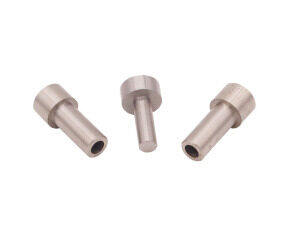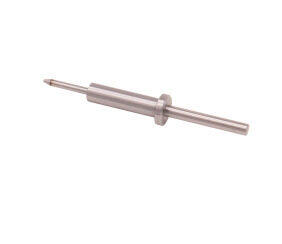Kunshan Guozheng Precision Mold Co.,Ltd
Add: No.396, Dujia Road, Zhoushi Town, Kunshan City
Email: info@kokusei-seimitsu.com.cn
Tel:+86 0512-57171088
Phone: +86 0512-57171088
Email:info@kokusei-seimitsu.com.cn
Website: www.kokusei.com.cn
Address:No.396, Dujia Road, Zhoushi Town, Kunshan City
CNC machining is a popular manufacturing process that involves the use of computer numerical control (CNC) machines to produce precise and complex parts from various materials. When it comes to choosing the appropriate material for CNC machining parts, there are several factors to consider, including the mechanical properties, cost, availability, and intended application of the parts.
One of the most commonly used materials in CNC machining is metals. Metals offer excellent strength, durability, and heat resistance, making them suitable for a wide range of applications. Some commonly used metals in CNC machining include aluminum, stainless steel, brass, and titanium.
Aluminum is lightweight, corrosion-resistant, and possesses excellent electrical conductivity, making it a popular choice for CNC machined parts in industries such as automotive and electronics. Its superior machinability and affordability also make it the material of choice for rapid prototyping and small-batch production.
Stainless steel is known for its high strength, corrosion resistance, and aesthetic appeal. It is commonly used in CNC machining parts that require durability and resistance to harsh environments. Stainless steel parts can be found in industries such as medical, marine, and food processing.
Brass is a versatile material that offers good strength, electrical conductivity, and corrosion resistance. It is often used in CNC machining parts that require high precision, such as valves, fittings, and electrical connectors. Brass is also valued for its aesthetic qualities and is commonly used in decorative applications.

Titanium is a lightweight, high-strength material with excellent corrosion resistance. It is commonly used in CNC-machined parts for medical and automotive applications where strength-to-weight ratio is critical. However, compared to other metals, titanium is more expensive and requires specialized machining techniques due to its high strength and low thermal conductivity.
techniques due to its high strength and low thermal conductivity.
Apart from metals, CNC machining parts can also be produced from various plastics and composites. Plastics offer advantages such as lower cost, lighter weight, and design flexibility. Common plastics used in CNC machining include Acrylic, ABS, Polypropylene, and Nylon. These materials are often used in industries such as consumer electronics, automotive, and medical devices, where weight reduction and cost-efficiency are important considerations.
Composite materials combine the advantages of different materials, such as high strength, light weight, and specific properties tailored for their intended applications. For example, carbon fiber composites are widely used in high-performance applications like sports equipment and automotive components, where strength and weight reduction are critical.

The choice of material for CNC machining parts should also take into consideration the intended application and its specific requirements. For example, if the part needs to withstand high temperatures or corrosive environments, materials with excellent heat resistance or corrosion resistance should be selected. On the other hand, if the part requires electrical conductivity or insulation, materials with specific electrical properties should be considered.
In conclusion, the choice of material for CNC machining parts depends on a variety of factors, including mechanical properties, cost, availability, and intended application. Metals, plastics, and composites each offer unique advantages and are suited for different applications. By carefully considering these factors, one can choose the appropriate material that best suits their needs and requirements.